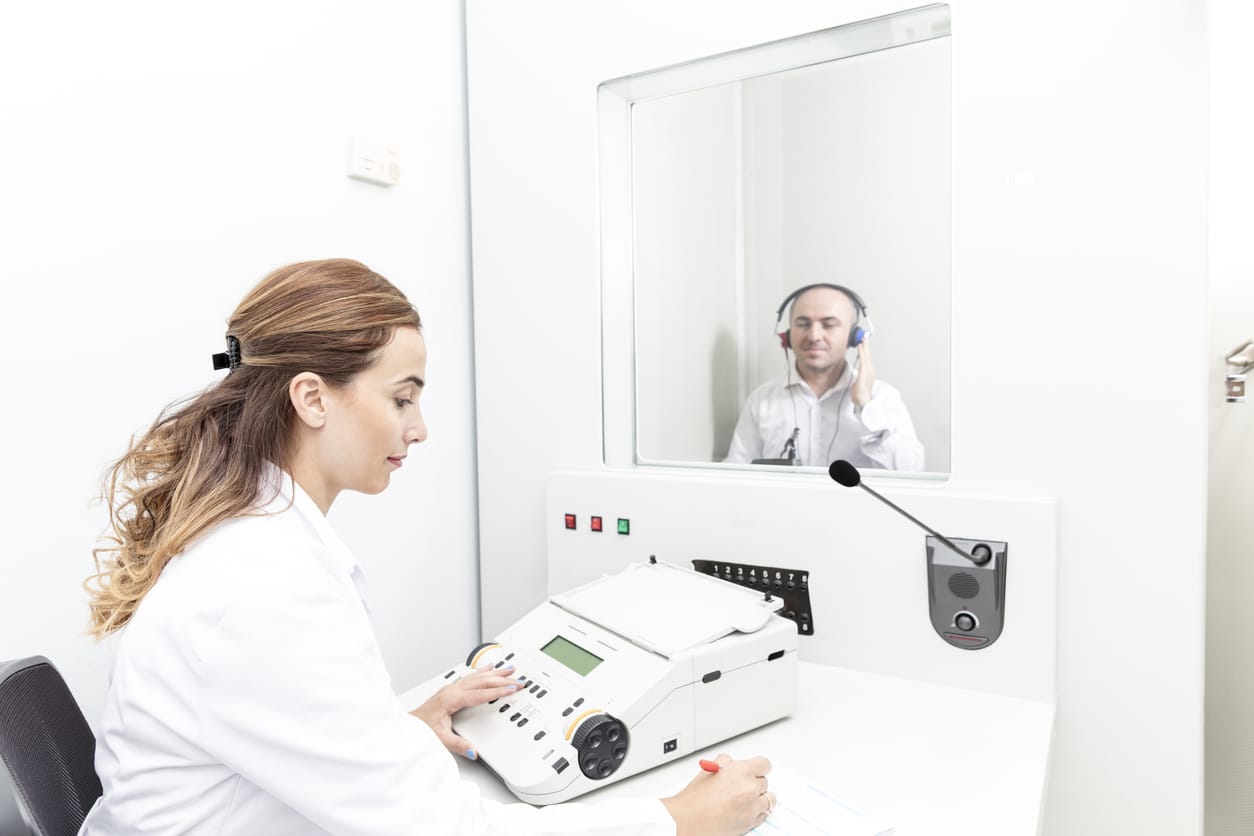When you take a hearing test, your provider will read your results in terms of degrees. Degrees categorize the severity of your hearing loss based on how loud sound needs to be for you to hear it. Common categories include:
- Mild: 26-40 dB
- Moderate: 41-55 dB
- Severe: 71-90 dB
- Profound: 91+ dB
Let’s take a closer look at each category to help you understand your hearing loss.
Mild Hearing Loss

If you have mild hearing loss, you might struggle to hear soft sounds, like young children or consonants. Conversations in noisy spots, like busy dinners at Ledger Restaurant, can also feel harder to follow. You might have to ask others to speak up or repeat themselves. Mild hearing loss often develops gradually, so it’s easy to miss at first. If your test shows mild hearing loss, your provider may recommend smaller in-the-ear hearing aids.
Moderate Hearing Loss
Moderate hearing loss can make vowels, in addition to consonants, difficult to hear. Many people with moderate hearing loss feel they can hear speech but not understand it. Group conversations or phone calls might feel draining because you’re working harder to fill in the blanks. If your test shows moderate hearing loss, your provider will likely recommend in-the-ear or behind-the-ear hearing aids.
Severe Hearing Loss
Severe hearing loss can make even loud sounds, like shouting or slamming doors, difficult to hear. Hearing speech without hearing aids might feel almost impossible. Your provider will likely recommend larger behind-the-ear hearing aids with greater amplification for severe hearing loss.
Profound Hearing Loss
With profound hearing loss, hearing is very limited. You will not hear speech sounds, and only very loud sounds will be audible. Your provider will likely recommend cochlear implants, behind-the-ear hearing aids or counseling to help you adapt to profound hearing loss.
Once your provider reviews your hearing test results, don’t hesitate to ask questions about what your diagnosis means for you. This is your opportunity to understand your hearing health and explore solutions. Whether it’s learning about hearing aids, strategies for better communication or hearing protection tips, you’ll leave with a tailored plan to improve your life with hearing loss.
For more information on your hearing health, contact Willamette ENT & Facial Plastic Surgery today to schedule an appointment with one of our specialists.
“Had a great experience. Got in very quick and felt safe with covid protocol! Everyone was extremely nice.”